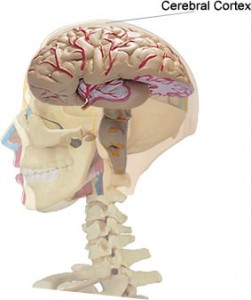The Guardian had a fun feature in its Sunday January 2 edition, which it entitled “25 Predictions for the Next 20 Years.” Their tea-leaf reading seems a little aggressive, but the challenge of prognosticating is to force yourself to not play it safe. Some of the predictions have intriguing headings like “Russia will become a global food superpower” and “Technology creates smarter clothes.” An excerpt from the entry called “We’ll be able to plug information streams directly into the cortex”:
“By 2030, we are likely to have developed no-frills brain-machine interfaces, allowing the paralysed to dance in their thought-controlled exoskeleton suits. I sincerely hope we will not still be interfacing with computers via keyboards, one forlorn letter at a time.
I’d like to imagine we’ll have robots to do our bidding. But I predicted that 20 years ago, when I was a sanguine boy leaving Star Wars, and the smartest robot we have now is the Roomba vacuum cleaner. So I won’t be surprised if I’m wrong in another 25 years. Artificial intelligence has proved itself an unexpectedly difficult problem.
Maybe we will understand what’s happening when we immerse our heads into the colourful night blender of dreams. We will have cracked the secret of human memory by realising that it was never about storing things, but about the relationships between things. Will we have reached the singularity – the point at which computers surpass human intelligence and perhaps give us our comeuppance? We’ll probably be able to plug information streams directly into the cortex for those who want it badly enough to risk the surgery. There will be smart drugs to enhance learning and memory and a flourishing black market among ambitious students to obtain them.”

